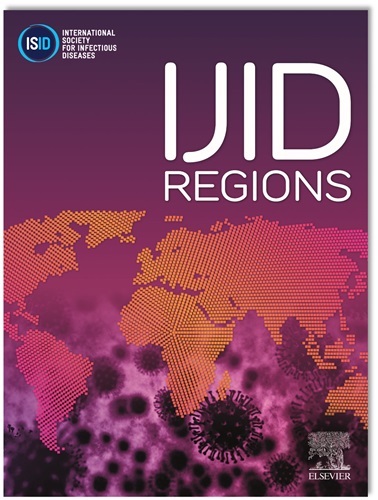针对糖尿病和结核病合并症的宿主定向治疗,迈向全球消除结核病。
IF 4.8
2区 医学
Q1 INFECTIOUS DISEASES
引用次数: 0
摘要
作为治疗结核病的传统抗生素的辅助手段,以及作为预防结核分枝杆菌感染后疾病进展的一种策略,宿主导向疗法可能会彻底改变结核病的控制。日益严重的2型糖尿病大流行正在阻碍全球结核病的控制,因为糖尿病患者患结核病的风险增加,治疗结果也较差。肺结核的特点是炎症反应,可导致肺泡组织破坏和空化,这种炎症在结核病-糖尿病合并症患者中加剧。因此,减少炎症反应是宿主定向治疗抑制免疫病理的关键目标,但炎症反应不能被过度抑制是至关重要的,否则免疫系统将无法对结核分枝杆菌作出反应,而分枝杆菌的复制将会加强。此外,I型干扰素反应和宿主细胞代谢在结核病-糖尿病合并症中进一步失调,可能导致治疗结果不佳。在结核病-糖尿病合并症中,在调节炎症和免疫反应方面达到适当的平衡,无论是数量上还是时间上,都更为复杂,这一人群应特别包括在新方案的临床试验中。在这方面,数学模型在阐明哪些生物途径应该针对不同的人方面起着关键作用。针对结核病-糖尿病合并症患者的宿主定向治疗将减少免疫病理和结核后肺病,并提高微生物治愈和治疗效果,从而有助于实现全球消除结核病的目标。本文章由计算机程序翻译,如有差异,请以英文原文为准。
Host-directed therapy in diabetes and tuberculosis comorbidity toward global tuberculosis elimination
Host-directed therapy could potentially revolutionize tuberculosis control as an adjunct to traditional antibiotics for the treatment of tuberculosis disease and as a strategy to prevent disease progression following Mycobacterium tuberculosis infection. The growing type 2 diabetes pandemic is hampering tuberculosis control worldwide, as people with diabetes have an increased risk of developing tuberculosis disease as well as worse treatment outcomes. Pulmonary tuberculosis is characterized by an inflammatory response that can cause alveolar tissue destruction and cavitation, and this inflammation is exacerbated in people with tuberculosis-diabetes comorbidity. Thus, the reduction of the inflammatory response is a key goal of host-directed therapy to dampen immunopathology, but it is vital that the inflammatory response is not suppressed too much, or the immune system will not be able to react to M. tuberculosis and mycobacterial replication will intensify. Furthermore, the type I interferon response and host cell metabolism are further dysregulated in tuberculosis-diabetes comorbidity, likely contributing to poor treatment outcomes. Achieving the right balance in terms of modulating the inflammatory and immune responses, both quantitatively and temporally, is more complex in tuberculosis-diabetes comorbidity, and this population should be included specifically in clinical trials of new regimens. In this regard, mathematical modeling has a key role in elucidating which biologic pathways should be targeted in different people. Host-directed therapy for people with tuberculosis-diabetes comorbidity will reduce immunopathology and post-tuberculosis lung disease, as well as boost microbiologic cure and treatment outcomes, and thus help in the fight toward global tuberculosis elimination.
求助全文
通过发布文献求助,成功后即可免费获取论文全文。
去求助
来源期刊
CiteScore
18.90
自引率
2.40%
发文量
1020
审稿时长
30 days
期刊介绍:
International Journal of Infectious Diseases (IJID)
Publisher: International Society for Infectious Diseases
Publication Frequency: Monthly
Type: Peer-reviewed, Open Access
Scope:
Publishes original clinical and laboratory-based research.
Reports clinical trials, reviews, and some case reports.
Focuses on epidemiology, clinical diagnosis, treatment, and control of infectious diseases.
Emphasizes diseases common in under-resourced countries.

 求助内容:
求助内容: 应助结果提醒方式:
应助结果提醒方式:


